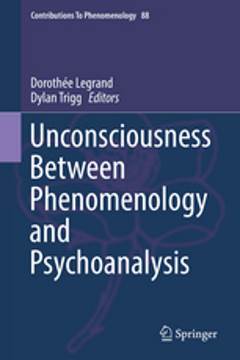Repository | Book | Chapter

(2017) Unconsciousness between phenomenology and psychoanalysis, Dordrecht, Springer.
Merleau-Ponty's conception of the unconscious in the late manuscripts
pp. 41-59
Original and daring, the late Merleau-Ponty's conception of the unconscious marks a culmination of his phenomenological project. Inseparable from his primacy of perception and his philosophy of the flesh, this conception involves essential dimensions of his anthropology as well as his ontology. I explore this thematic in a dynamic development, following the philosopher's evolution, first in a negative approach – the critique of consciousness, but also of our mistaken conceptions of the unconscious –, which gradually gives way to a positive description. Merleau-Ponty's reflection on the unconscious goes far beyond his reception of psychoanalysis: supported by his philosophical intention, rooted in his (anti) Cartesian scenario, it leads to his final answer to the Cogito. In its development, it involves his phenomenology of perception, his late work on imaginary and expression, and raises the delicate question of the relationship between flesh and being. In Merleau-Ponty's late manuscripts, consciousness becomes autistic, blind, while the unconscious holds the most positive if not the most expressive, the most opened if not the most fertile dimension of our being-in-the-world. It participates at the same time to the most archaic and the most refined aspects of our relationship to the world, to the other, to being. The collection of unpublished manuscripts constituted by the Notes on the body proves to be a major document apropos this subject.
Publication details
DOI: 10.1007/978-3-319-55518-8_3
Full citation:
(2017)., Merleau-Ponty's conception of the unconscious in the late manuscripts, in D. Legrand & D. Trigg (eds.), Unconsciousness between phenomenology and psychoanalysis, Dordrecht, Springer, pp. 41-59.
This document is unfortunately not available for download at the moment.



